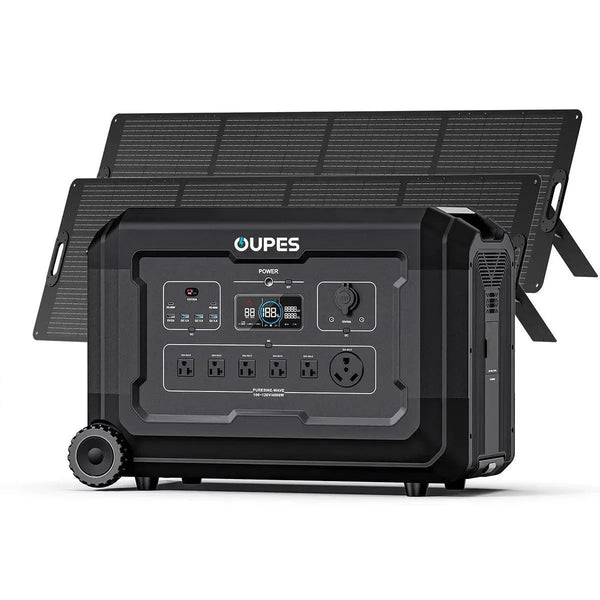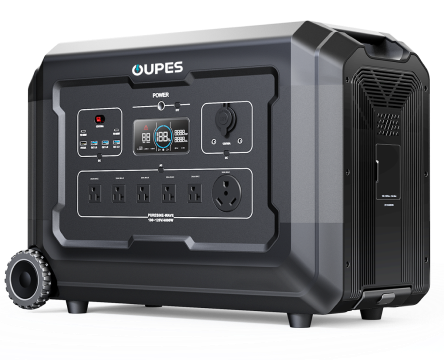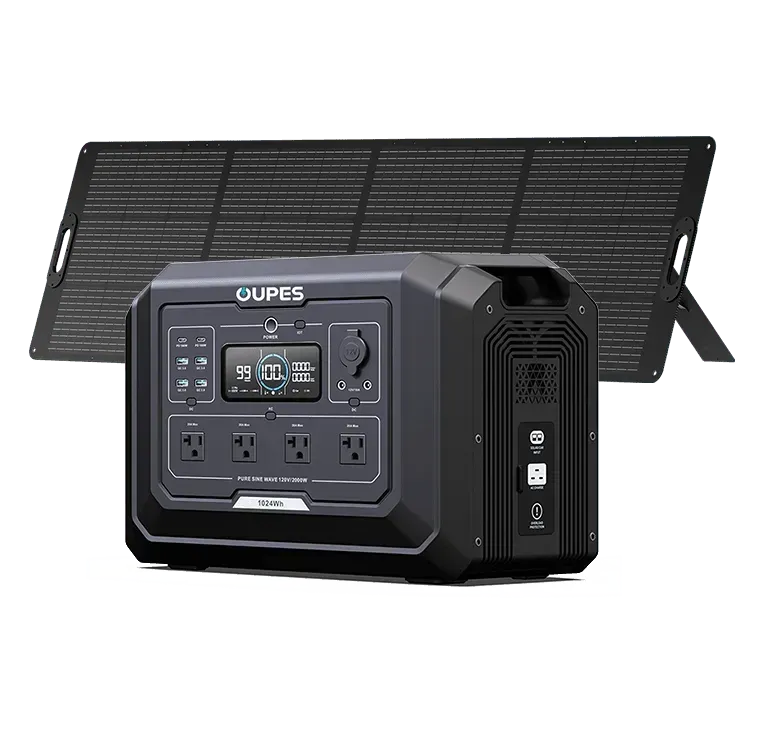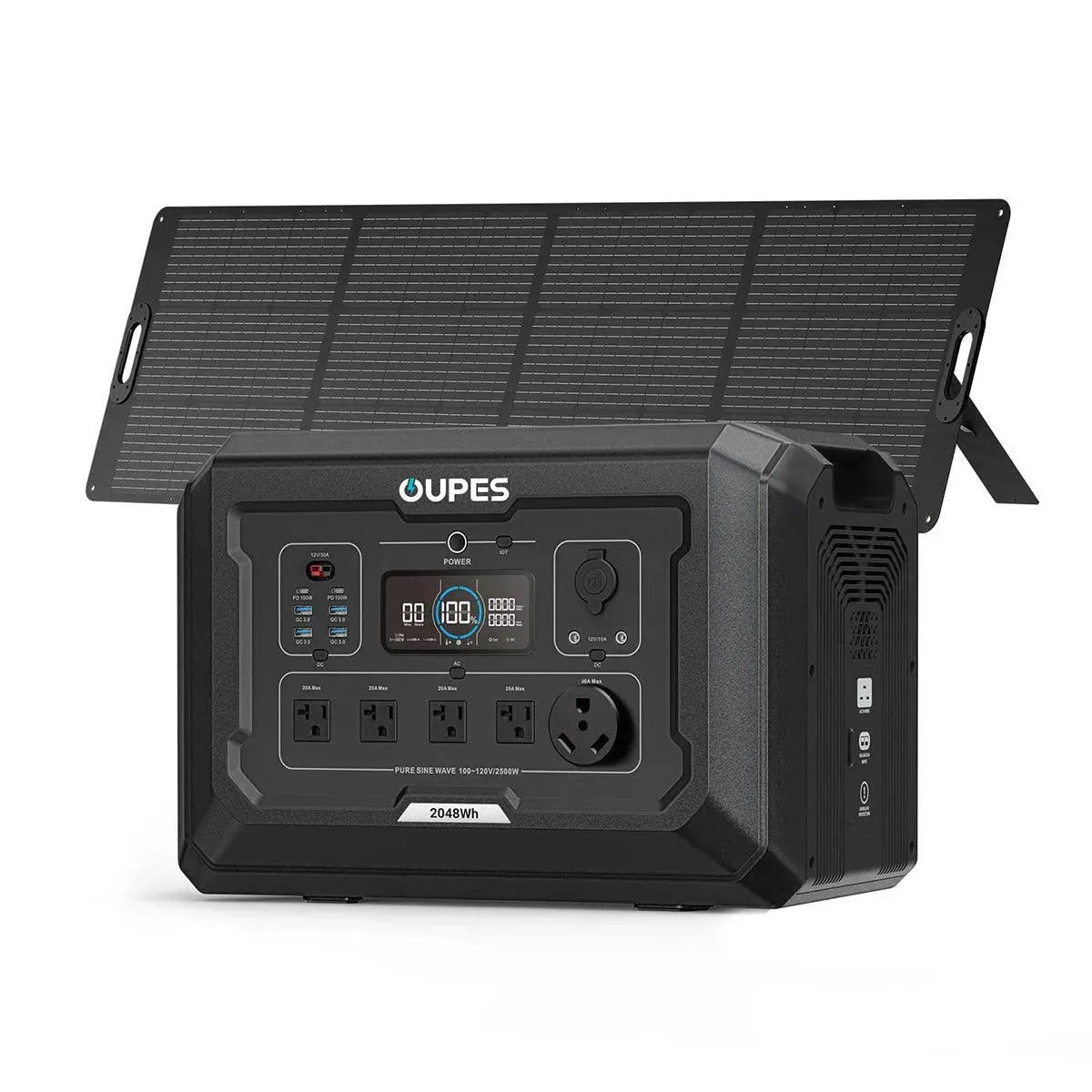
Table of Contents
- Introduction: Why Refrigerators Need Reliable Backup Power
- Power Requirements for Running a Refrigerator
- Scenarios: Choosing the Right Power Station for Your Refrigerator
- Comparison of OUPES Portable Power Stations for Refrigerators
- Tips for Maximizing Efficiency When Running a Refrigerator
- FAQs
- Conclusion
Introduction: Why Refrigerators Need Reliable Backup Power
Refrigerators are among the most critical appliances in any household. They preserve food, medicines, and daily essentials, making uninterrupted power vital. During outages, camping, or off-grid living, keeping your fridge running ensures safety, comfort, and convenience.
Portable power stations provide a clean, quiet, and flexible alternative to noisy gas generators. But not every unit has the capacity to handle a refrigerator. In this guide, we’ll explore what it takes to power a fridge, compare OUPES models, and help you find the best fit.
Power Requirements for Running a Refrigerator
Before choosing a portable power station, it’s important to understand how much power refrigerators require. Most modern fridges consume between 100W and 800W, depending on size, age, and efficiency. However, they also require a higher surge wattage—often two to three times their rated power—when starting up.
Running Watts
The continuous power needed to keep the refrigerator running. For example, a small mini-fridge may need 100W–200W, while a full-size refrigerator might consume 400W–700W.
Surge Watts
When the compressor kicks in, refrigerators demand a surge—sometimes up to 1500W or more. Choosing a station with sufficient surge output ensures the fridge starts without tripping the system.
Energy Efficiency
Energy-efficient refrigerators consume less power, meaning smaller power stations may suffice. Older models typically require larger capacity units for reliable operation.
Scenarios: Choosing the Right Power Station for Your Refrigerator
The best portable power station depends on your lifestyle and fridge type. Here are common scenarios:
Emergency Home Backup
During outages, a refrigerator is a priority. The OUPES Mega 3 (3072Wh, 3600W output) or Mega 5 (5040Wh, 4000W output) provide enough capacity and surge power to run full-size fridges for multiple hours or even days when combined with solar input.
Small Apartments or Dorm Rooms
For mini-fridges, smaller units like the OUPES Exodus 1200 (992Wh, 1200W output) offer an efficient, compact solution that can power the fridge for 6–12 hours depending on usage.
RV and Off-Grid Travel
RV refrigerators vary in size but often demand 500W–1000W. Mid-range units like the OUPES Mega 2 (2048Wh, 2500W output) provide enough runtime while remaining portable for travel.
Extended Outages and Off-Grid Living
For households relying heavily on refrigeration, expandable systems like the OUPES Mega 5 (up to 45.36kWh with extra batteries) provide reliable, renewable backup when paired with solar panels.
Comparison of OUPES Portable Power Stations for Refrigerators
Here’s a comparison table of OUPES models best suited for refrigerators:
| Model | Capacity | AC Output | Surge Output | Approx. Refrigerator Runtime | Best Use Case |
|---|---|---|---|---|---|
| Exodus 1200 | 992Wh | 1200W | 3600W | 6–12 hrs (mini-fridge) | Small homes, dorms |
| Mega 2 | 2048Wh | 2500W | 5400W | 12–24 hrs (mid-size fridge) | RV, travel |
| Mega 3 | 3072Wh | 3600W | 7000W | 1–2 days (full-size fridge) | Home backup |
| Mega 5 | 5040Wh | 4000W | 7000W | 2–3 days (full-size fridge) | Off-grid living |
Tips for Maximizing Efficiency When Running a Refrigerator
To get the most from your power station when running a refrigerator, follow these practices:
- Keep the fridge closed: Limit door openings to retain cold air and reduce power draw.
- Use energy-efficient fridges: Modern units consume less energy, extending runtime.
- Pair with solar panels: Recharge during daylight to extend backup during long outages.
- Monitor usage: Use OUPES app control and display screens to track energy consumption.
- Consider expandability: Models like the Mega 5 allow adding extra batteries for long-term resilience.
FAQs
Can a portable power station run a full-size refrigerator?
Yes. Larger models like the OUPES Mega 3 and Mega 5 are designed to handle full-size fridges reliably.
How many hours will a 1000Wh station run a fridge?
It can typically run a small fridge for 6–12 hours, depending on consumption and efficiency.
Do refrigerators require surge power?
Yes. The compressor requires a surge 2–3 times higher than running wattage to start.
Which OUPES model is best for RV refrigerators?
The OUPES Mega 2 offers a balance of portability and capacity for RV fridges.
Can solar charging extend fridge runtime?
Absolutely. Solar panels can recharge your power station during the day, extending runtime indefinitely.
Is it safe to run a fridge indoors with a power station?
Yes. OUPES power stations are silent, emission-free, and safe indoors.
How long does the OUPES Mega 5 last with a refrigerator?
It can run a standard full-size refrigerator for up to 2–3 days per charge, longer with solar input.
Conclusion
Running a refrigerator with a portable power station is not only possible but practical with the right model. Smaller stations work for mini-fridges, while larger expandable units like the OUPES Mega 5 are built for long-term reliability.
By understanding your refrigerator’s power requirements and matching them with the right OUPES station, you’ll ensure fresh food, peace of mind, and energy independence during outages or adventures.




























